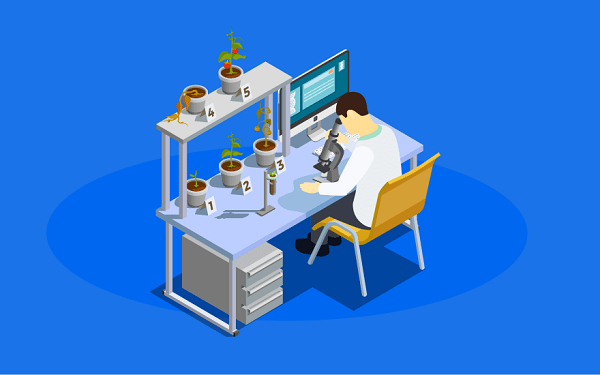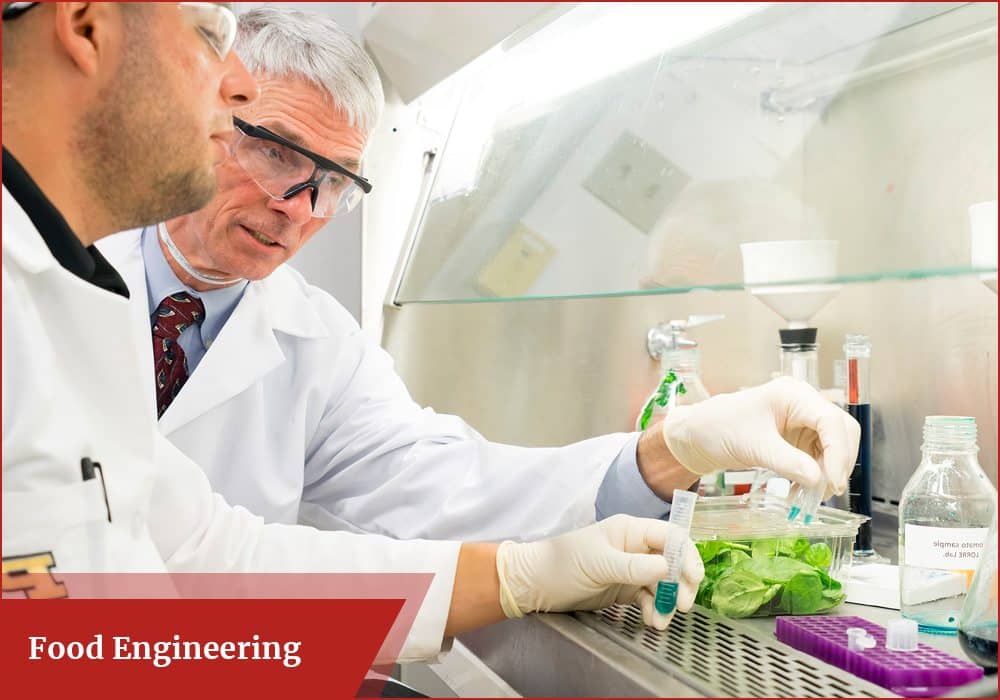Food engineers design and develop food production systems, new ingredients, package materials, and equipment. They work in various fields such as agriculture, animal science, engineering and manufacturing to produce safe food for consumers. According to the Bureau of Labor Statistics, food engineering has been gaining popularity with an expected growth rate of 17% from 2012-2022. To become a food engineer, there are many paths you can take, including studying chemical engineering at university or pursuing apprenticeship training programs through trade schools. It’s important to know what type of specialization you want before applying because it will determine your course load once accepted into the program you choose.
What is food engineering?
Food engineering is a highly technical field that combines chemistry, biology and engineering to produce safe food. Food engineers design and develop processed foods; study ingredients’ physical properties, study ways to improve yields, quality and cost-effectiveness; research, experiment with new food processes; perform quality control tests on raw materials and finished products. Read more: Food sustainability: what it is and why it is important?
How does food engineering work?
Food engineers must manage food safety in the lab, in processing plants and distribution warehouses. In a large food production facility, several people ensure that consumers get fresh, safe food.
Quality Control Manager: ensures quality standards within a facility by testing ingredients and finished products for microbial contamination or pesticides to guarantee that consumers will get the safest food possible.
Purchasing Agent: ensures that all ingredients used in a food product are suitable for human consumption and that they come from reputable suppliers while staying within the established budget.
Food Engineers: design new processes for manufacturing safe food efficiently by using proper equipment and materials. Food engineers also develop new packaging materials to protect the food and ensure that the product is contaminant-free.
Food Technologist: performs research in R&D to discover new ways to create innovative or more efficient food processes, improve existing food products, evaluate prototypes of packaging materials and ingredients.
Packaging Engineer: designs new forms of packaging material for foods considering safety, durability, self-standing properties and shape.
Food Technician: operates machinery such as mixers, mills, ovens and scales to produce safe food.
Quality Assurance Manager manages all certification tests of final products to ensure they meet government safety standards for health and safety.
Benefits of food engineering
Salaries for food engineers vary greatly depending on the region, company and job title. However, food engineers can expect to earn an average salary of $72 628 in the USA. The range begins at $45 668 for an entry level position all the way up to $120 000 for managers or higher-ranking positions. Education requirements to become a food engineer vary depending on the type of program or experience desired. Therefore, some food engineers have a Bachelor’s degree in Food Science while some only have a high school diploma and extensive on-the-job training. Many companies offer apprenticeship programs for individuals with no previous training to develop manufacturing processes, machining, and fabrication skills. Once complete, apprentices can become certified and apply for entry-level engineering jobs.
The food industry is a vast and multidisciplinary field that requires the effort of many professionals to ensure that safe food is delivered to consumers on a daily basis. Food engineers play an integral part in this process by designing, developing and improving new methods of producing fresh foods at low costs while maintaining the safety and quality consumers expect.
What are the challenges of food engineering?
Growing global populations are putting greater demands on food production, leading to challenges in developing new methods of growing and harvesting fruits and vegetables that require less land, water, and chemicals. Also, growing concerns about environmental impact have led to research into biological engineering or genetic modification of foods. However, the use of GMOs has raised controversy over its safety, which is where food engineers must balance the cost/benefit of implementing this technology into production.
New innovations in making packages that protect foods from contaminants while allowing them to breathe and keeping shelf life longer will mean consumers get fresher products which is a growing concern as people move away from home cooking and eat pre-packaged meals more often. This trend is also responsible for food manufacturers using more single-use plastics which can negatively impact the environment and human health in the long run.
Tags: Food Engineering





Leave a Reply